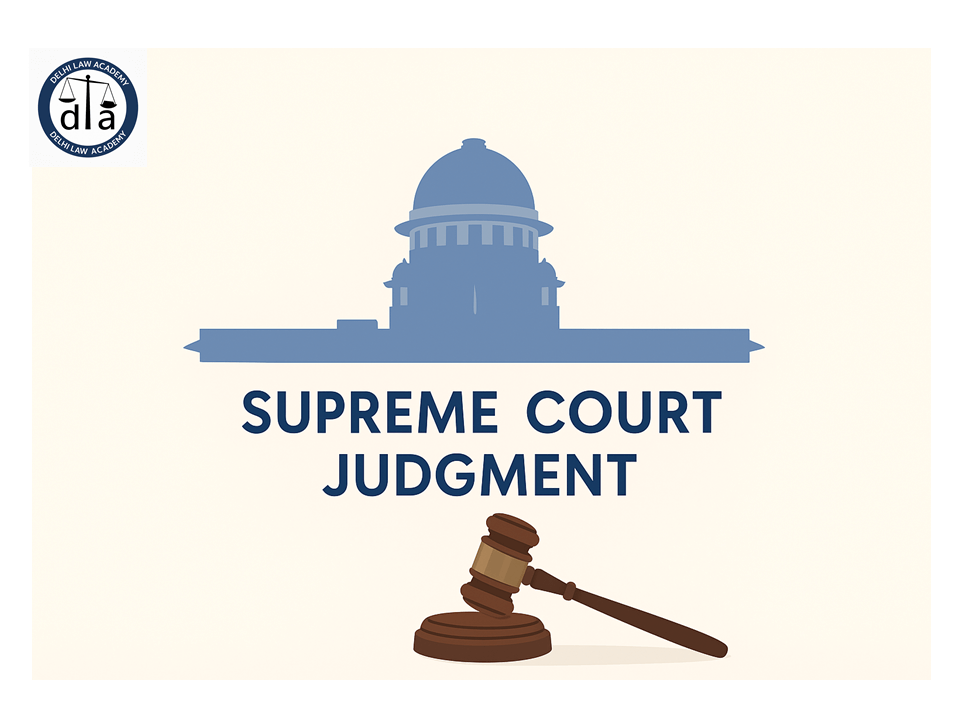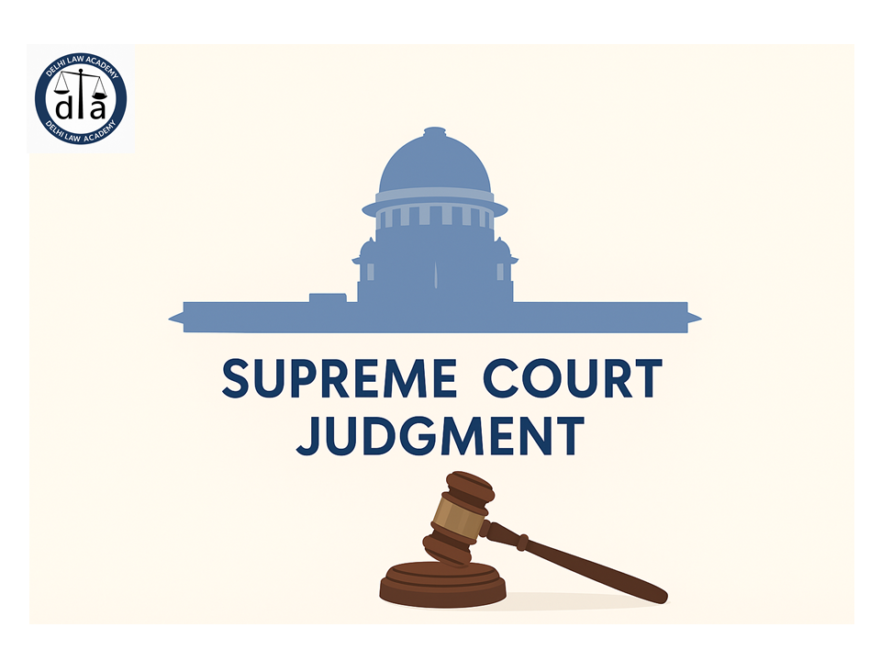
⚖️ Supreme Court Declares Mental Health a Fundamental Right (2025)
🗓️ Date of Judgment: 25 July 2025
📍 Case: Sukdeb Saha v. State of Andhra Pradesh
In a landmark ruling, the Supreme Court held that mental health is an integral part of the Right to Life under Article 21 of the Indian Constitution. The Court also issued 15 strong guidelines for schools and coaching centres to protect student well-being.
📌 Background of the Case
The case arose after the tragic suicide of a student, allegedly due to extreme academic pressure and lack of mental health support at a coaching institute. The petitioner, Sukdeb Saha, argued that such environments violate students’ fundamental rights and sought reforms to make mental health a priority in education.
⚖️ Supreme Court’s Observations
The bench of Justice B.R. Gavai and Justice K.V. Viswanathan stated:
- 🧠 Students are not machines; their psychological well-being is equally important as academics.
- 📚 Educational institutions and coaching centres have a legal duty of care towards their students.
- 🔒 The State must ensure safe learning environments to prevent student suicides.
📝 The 15 Guidelines Issued by the Court
- 📜 Mandatory written mental health policy in every institution.
- 👩⚕️ Appointment of trained counsellors and psychologists.
- 🔎 Regular mental health check-ups for students.
- 🚫 Strict anti-bullying and anti-harassment policies.
- 📞 Display of suicide prevention helplines.
- ⚖️ No discrimination on caste, gender, or performance.
- 🏫 State regulation of coaching centres.
- 👨🏫 Teacher sensitivity and mental health training.
- 📊 Constructive evaluation instead of humiliation.
- 👪 Active parent-institution collaboration.
- ⚽ Inclusion of recreation, arts, and sports.
- 🛡️ Safe and pressure-free learning environment.
- 🏛️ Government oversight and compliance checks.
- 🚑 Crisis protocols for handling suicidal tendencies.
- 🧠 Recognition of mental health as a fundamental right under Article 21.
🌍 Why This Judgment Matters
This ruling is a milestone in Indian constitutional law. It recognizes that the Right to Life is incomplete without mental health. By directly addressing the rising cases of student suicides in places like Kota, the Court has placed responsibility not only on families, but also on schools, coaching institutes, and the State to safeguard emotional well-being.
✅ This judgment sends a clear message: Education must empower, not break down students.
❓ FAQs on Supreme Court Mental Health Judgment (2025)
▶
▶
▶
▶
▶
▶

